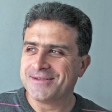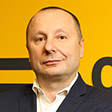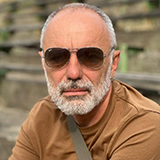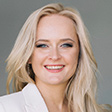The main mistakes of the West in understanding Russia. Part 1
Western civilization does not like the war that Russia has waged against Ukraine. Many civilized, educated, and cultured people are confused and embarrassed by the images on TV of Ukrainian cities that have been completely destroyed by Russia. People who grew up with an awareness of universal values are uncomfortable watching rescuers pulling out the bodies of children, including babies and their mothers, from the rubble after Russian shelling. Often – entire families killed by the Russian military – as it was recently in Odesa. The reality of this war is inconsistent with the concepts of the value of human life and the basic inalienable rights of people that we have learned since childhood. That is, the values on which the modern Euro-Atlantic civilization is based. And this internal discomfort sometimes leads to false conclusions. For example, that this violence can be stopped by capitulation disguised as "peace" on Russia's terms. Something similar has already happened in history. In the de facto occupied Ukraine of the 20th century, after the declaration of independence, the Stalinist regime organized an artificial famine that killed millions of people. I understand that it is difficult for a civilized person to believe this. But there is no escaping the facts. The Holodomor has been recognized as genocide of the Ukrainian people by many parliaments around the world, including the European Parliament. Do the people who are now offering Ukraine, in fact, to fulfill Russia's demands, have a feeling that Putin's regime, which kills and steals even children in Ukraine, is more humane than Stalinism? This is a serious mistake, based on either the naivete of the Western perception of the world or the unsuccessful search for a quick fix.
If Ukraine's resistance stops, Russia will definitely not stop the violence and "denazification," the absurdity of which was recognized by Tucker Carlson, who recently interviewed Russian President Vladimir Putin. The same Putin for whom the International Criminal Court in The Hague (Netherlands) has already issued an arrest warrant as a suspect in the planning and execution of war crimes against Ukrainians. We are talking about war crimes against Ukrainian children, whom Russia is deporting to its territory in order to erase the memory of Ukraine and turn them into Russians obedient to Putin.
Civilization's mistake about Russia #2
In search of a lost sense of security, many analysts, as well as ordinary people, reason that if Russia invades Ukraine, it will stop. They say that Putin will take what he considers "his" and will not cross "red lines" with NATO countries. Optimists who believe this cite the example of Avdiivka, a town in the Donetsk region of eastern Ukraine that has been completely destroyed by Russian artillery and aircraft. They say that Putin's armies have been storming this small town for 10 years – since 2014, when Russia started the war against Ukraine with the occupation of Crimea and the war in the east of the country. In doing so, the Russian army literally buried thousands of troops and mountains of armored vehicles in the ground around Avdiivka, along with downed aircraft of the latest types such as Su-34 bombers and Su-35 fighters. In the end, what the Russians got was no longer a city with all the necessary infrastructure in place, but ruins from Russian shells, missiles, bombs, and white phosphorus that they poured down from the sky. All of this creates a certain illusion that Vilnius, Warsaw, or even Berlin are simply "beyond the reach" of modern Russians. This may be true. But it is not a fact that the Russian military, which has been preparing for this "holy war" against the West for decades, understands this. Judging by the rhetoric of Putin and other Russian ideologues, they suggest that Russians die, bleed, but crawl stubbornly to the West. Painting their tanks with the words "Onward to Berlin!" and virally spreading the words of the commander-in-chief "we can do it again" in the minds of Russians. To turn European cities into a "business card of the Russian world" – ruins in the middle of Europe. With a large inscription on the ruins: "Putin was here". But this, believe me, is not the main thing. The question is different.
Russia's war against Ukraine is a war for resources
Try to imagine Russia's strength in the event of a seizure of Ukraine's powerful agricultural sector and the Ukrainian energy sector with its four operating nuclear power plants. And this is 15 nuclear power plants. A company that was being "hunted" not only by the Russians but also by the Chinese, for the production of aircraft jet engines (Motor Sich) or turbines for nuclear power plants (Turboatom). I'm not talking about the reserves of rare earth metals, raw materials for the titanium industry, lithium, uranium, etc., which Russian oligarchs had already divided among their corporations in absentia on the eve of the Russian invasion of Ukraine. After all, they planned to capture Kyiv "in three days," and the further distribution of Ukrainian wealth was to be the subject of agreements within Putin's business environment. Thus, the goal of Russia's war against Ukraine is to seize as many of Ukraine's strategic assets as possible.
Nuclear energy
The Russians have already seized some of Ukraine's resources, including the largest nuclear power plant in Europe, Zaporizhzhia Nuclear Power Plant with 6 nuclear power units, metal and grain in the occupied territories. At the seized nuclear power plant, the Russians have already replaced the staff with nuclear scientists from Rosatom imported from Russia and plan to connect the plant to the Russian power grid in the future, which will significantly increase not only the energy supply of Russian regions, such as Krasnodar Krai or the Ukrainian Crimea occupied by Russia, but also opportunities for Russian industry, which Putin has converted to a "military track." Six operating power units for a country that is trying to significantly increase the production of shells, armored vehicles, cannons, aircraft, small arms, and UAVs is exactly what militarized Russia needs. It is possible that the production of these weapons could be used against NATO countries in one way or another, either on the battlefield or as a political argument and means of pressure. And now imagine how much stronger Russia would be if it seized all of Ukraine's energy generating capacities, including three more operating nuclear power plants that Ukrainians have substantially modernized and converted to Western fuel from Westinghouse.
Russia has seized a part of the Ukrainian agricultural sector. How is this already affecting the global market?
Russia is flooding the world markets with grain. I wonder where Russia got such a surplus for export. It is logical to assume that the total amount of grain includes what Russia exports from the occupied territories of Ukraine. At the same time, it is trying to destroy food and grain stocks in Ukraine and reduce Ukraine's export potential. Perhaps some in the civilized world are surprised by Russia's targeted attacks on Ukraine's energy infrastructure, logistics centers, food storage facilities, and elevators. However, the destruction of these facilities is entirely consistent with Russian doctrine – they are not only destroying power plants and food supplies to weaken Ukrainian resistance. The Russians are trying to destroy a competitor on world markets and take away its assets and resources.
"Bloody" grain from Ukraine for export
When we hear from the countries that buy this grain (figuratively, bloody grain, with the blood of Ukrainians killed by the Russian army on it) that it is not Ukrainian grain that the Russians took out of the occupied territories, but purely Russian, I have a question for such people: how do you check this? Is every grain stamped "made in Russia"? Or do you believe the documents on which Russians put their stamps? Well, then let me remind you that Russia has illegally incorporated the occupied Ukrainian lands into the Russian Federation and considers everything stolen and taken from Ukraine to be its property. Although Russia's occupation of Ukrainian territories is not recognized by the world, it is not recognized by the UN. Even Russia's friends do not recognize the annexation of Ukrainian territories to Russia: China has made statements that it recognizes the sovereignty and territorial integrity of Ukraine. But, in the grand scheme of things, it doesn't matter what kind of grain Russia exports. Even if we assume that what was exported from Ukraine went exclusively to the Russian market. After all, at the expense of the Ukrainian resource, Putin is solving an internal problem: to feed both the population of the Russian Federation and its army, which is invading Ukraine. This has freed up additional opportunities for grain exports and sales abroad. This destabilizes, among other things, the EU markets. Although the Kremlin's information efforts are aimed at spreading the word that Polish farmers are suffering from Ukrainian grain. This is already leading to attempts to block the Ukrainian-Polish border. After all, this is the dream of Russian leaders: to block transportation links with Ukraine from all sides. Especially from the west, where Ukraine receives military and humanitarian aid. And our Western friends must realize that Putin is using his friends in the EU and NATO. Many people were puzzled by the slogan on a Polish tractor calling on Putin to "restore order with Ukraine, the Polish government and Brussels." Where do Putin's friends come from in normal countries? This is a long, separate conversation with excursions into the past. It's about how Moscow creates "fifth columns" and the economic infrastructure necessary for their existence. Using Ukraine as an example, I would say that the occupation of Crimea was actively supported by immigrants from Russia. They were citizens of Ukraine for some time. But they turned into Russian troops in sync with the external attack of regular Russian troops on Ukraine.
To be continued
Блог автора – матеріал, який відображає винятково точку зору автора. Текст блогу не претендує на об'єктивність та всебічність висвітлення теми, яка у ньому піднімається. Редакція "Української правди" не відповідає за достовірність та тлумачення наведеної інформації і виконує винятково роль носія. Точка зору редакції УП може не збігатися з точкою зору автора блогу.





